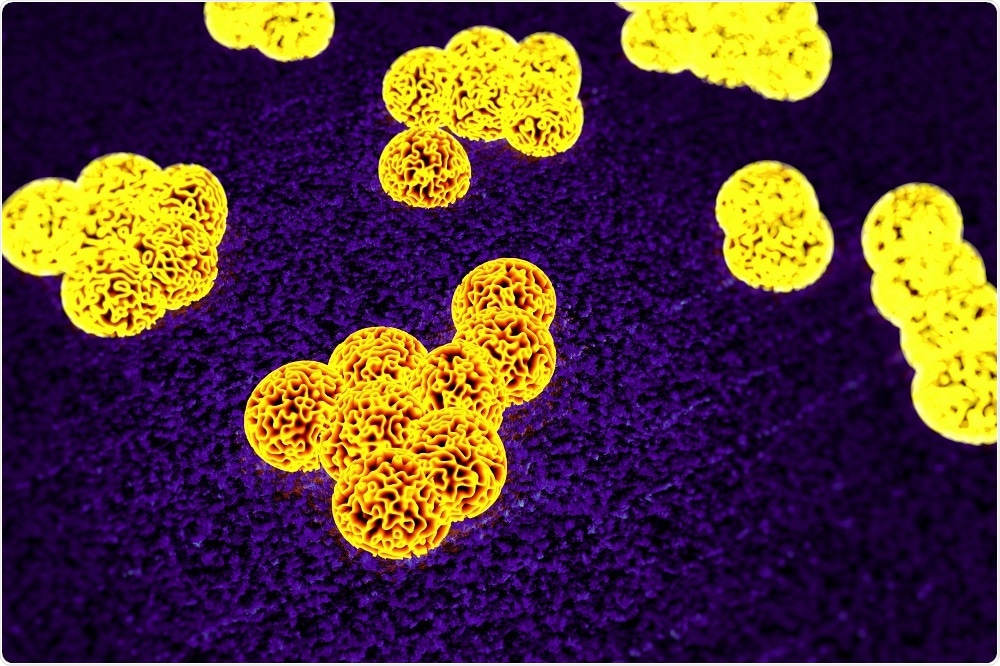Researchers at Michigan State University have identified why methicillin-resistant Staphylococcus aureus or MRSA is so resilient, a finding that could pave the way for potential new treatments.

Credit: royaltystockphoto.com/Shutterstock.com
The study, which has recently been published in the Journal of Bacteriology, describes how one of the bacteria’s strengths could be used against it to prevent its survival.
MRSA has evolved to become a highly resilient, deadly killer that can turn routine medical procedures into life-threatening battles.
Antibiotic-resistant bacteria represent a significant challenge in modern medicine, since they encode genes that enable them to keep one step ahead of the drugs researchers design to target them.
Attacking the cell membrane and inhibiting its ability to produce lipids, or fats, could be an effective treatment protocol. MRSA, though, bypasses the effects of fatty acid inhibitors by absorbing human lipids."
Professor Neal Hammer, Senior Author
The researchers decided to try to find out what the source of human fatty acids is that MRSA uses to give it an advantage.
The team suggests that MRSA takes the cholesterol found in human blood and integrates it into its own cell membrane.
This makes the bacteria resistant to antimicrobial agents that target fatty acid synthesis and given that there is plenty of cholesterol in the blood, MRSA has an endless supply of fatty acids.
RSA secretes enzymes, called 'lipases,' that free the fatty acids in human LDLs, or bad cholesterol. We used mass spectrometry to identify how MRSA was able to perform this feat - the first time this process has been observed."
Professor Neal Hammer, Senior Author
Now that the team has identified this survival mechanism, future studies can focus on how to prevent MRSA from obtaining the fatty acids.
Understanding this could help scientists improve the efficacy of antibacterial agents that are designed to inhibit the synthesis of bacterial fatty acids.
Source:
https://www.eurekalert.org/pub_releases/2018-05/msu-ums051418.php